From July 7 to 11, 2025, the Third Computational Urban Science: Urban Historical Space Computing and Modeling Workshop (abbreviated as the 2025 Third Computational Urban Science Workshop) was successfully held at the School of Architecture and Design, Harbin Institute of Technology. This workshop recruited a total of 20 students as planned, coming from well-known universities in Hong Kong and Macao, such as The Hong Kong Polytechnic University, Hong Kong Baptist University, and Macau University of Science and Technology. In order to promote exchanges and interaction between HIT teachers and students and those from Hong Kong and Macao, more than 30 outstanding teachers and students from the School of Architecture and Design of HIT were also invited to jointly participate in academic research and discussions.
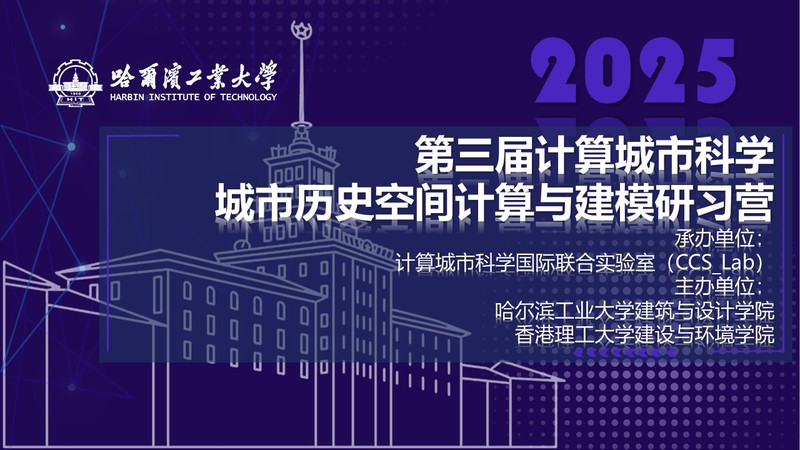
Part I: Thematic Academic Reports.
This workshop invited well-known scholars in the field of computational urban science from home and abroad to give 5 thematic reports. The report topics covered “Urban Artificial Intelligence: Theories, Methods and Applications”, “Urban Informatics for Sustainable and Livable Cities”, “Exploring Human Activities in Cyber-physical Spaces”, “Future Living Environment for IT-based Life Style”, “Computational Urban Science: Urban Spatial Computing and Modeling”, etc. The reports carried out discussion and exchanges around frontier theories and technologies of computational urban science and the application of AI large models in the field of urban planning.
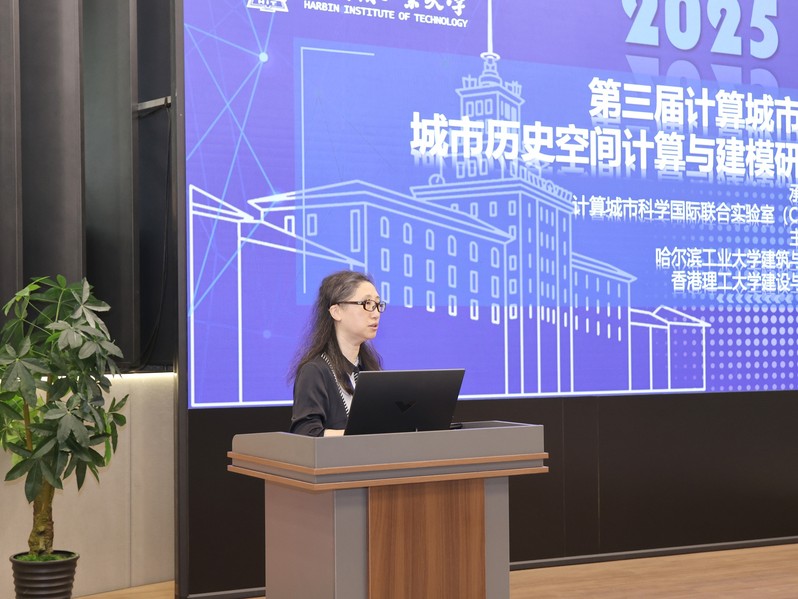
Prof. Leng Hong, Harbin Institute of Technology, chaired the academic activity
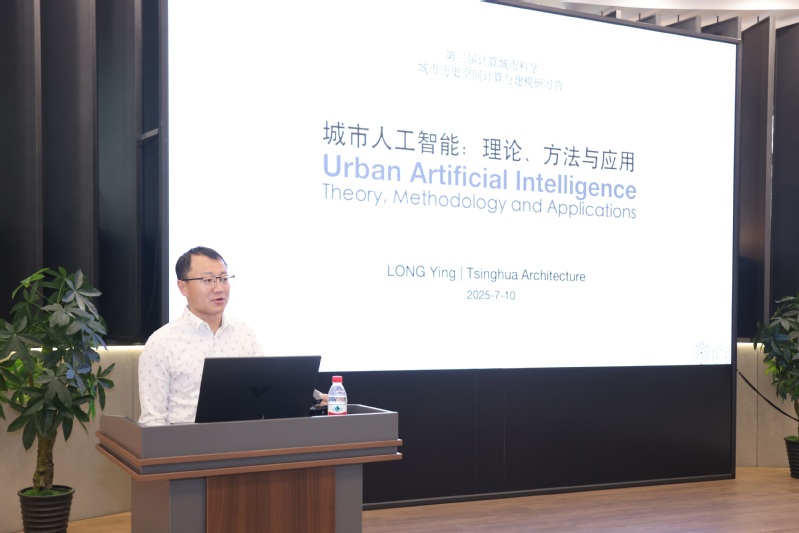
Prof. Long Ying, Tsinghua University, gave an academic report
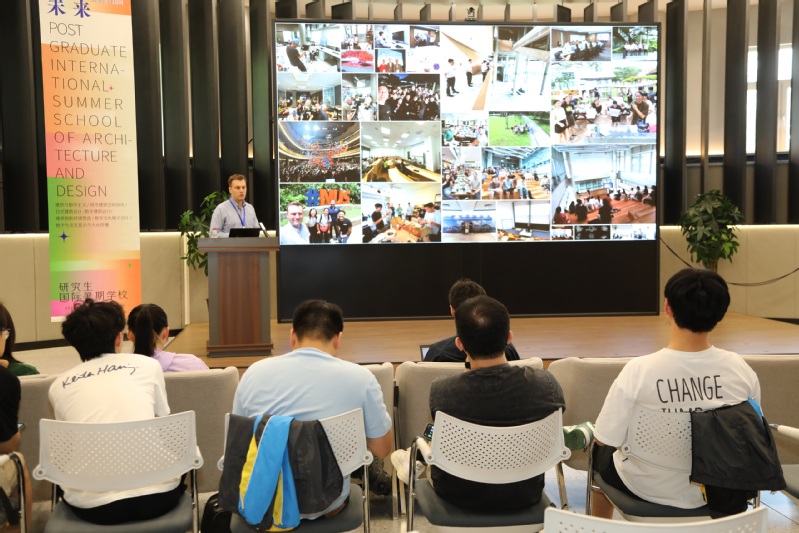
Asst. Prof. Filip Biljecki, National University of Singapore, gave an academic report
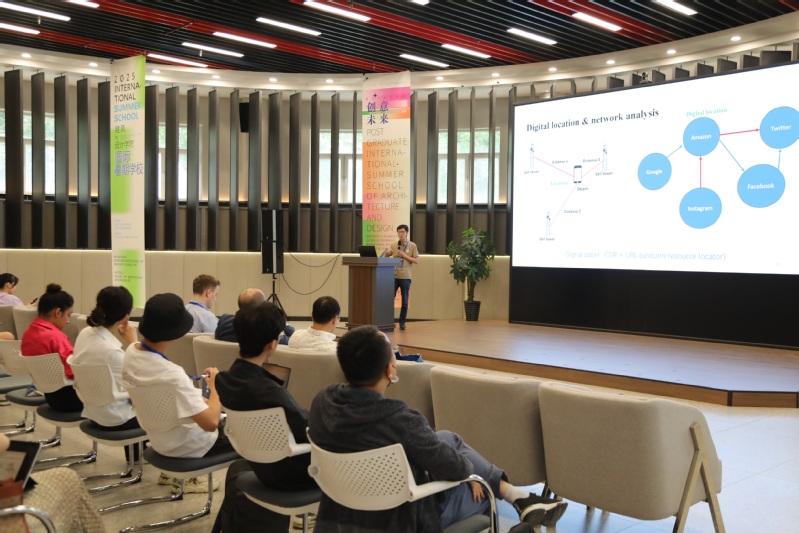
Assoc. Prof. Liu Xintao, The Hong Kong Polytechnic University, gave an academic report
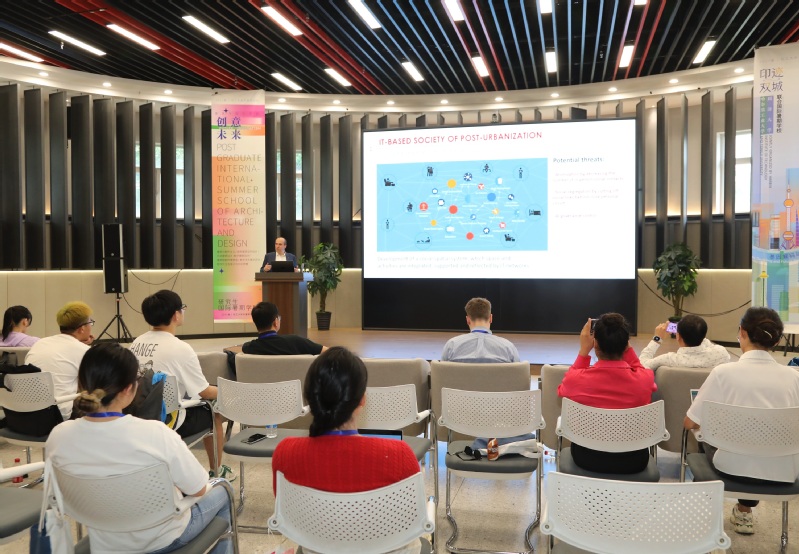
Assoc. Prof. Kudryavtsev Fedor, Moscow State University of Architecture, gave an academic report
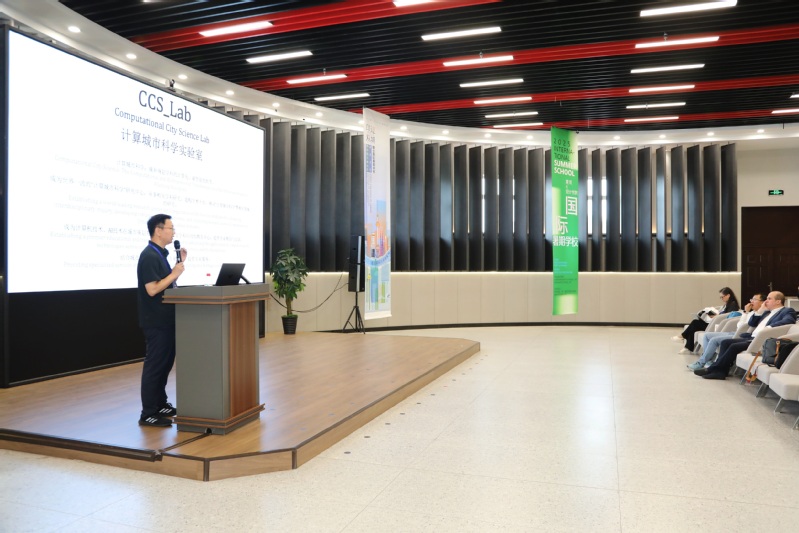
Assoc. Prof. Zhu Haixuan, Harbin Institute of Technology, gave an academic report
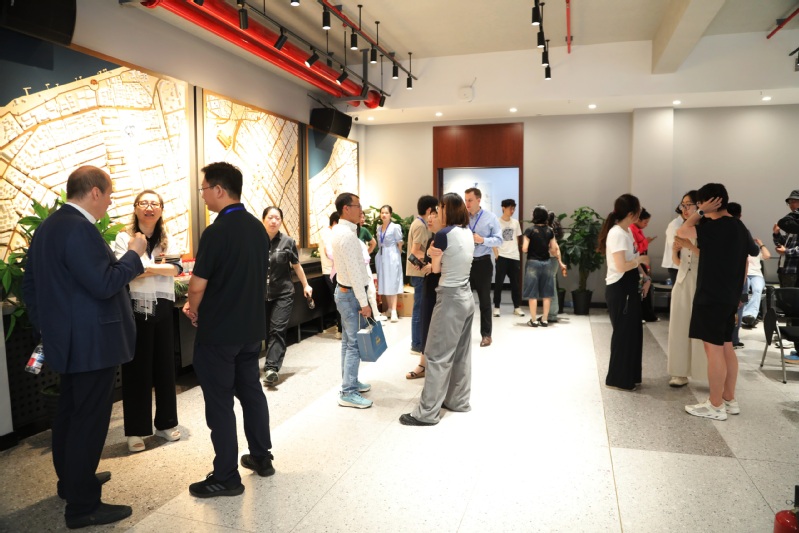
Guest speakers of the workshop thematic reports interacted and exchanged
Part II: Academic Research on Urban Spaces.
The workshop participants successively investigated many representative venues or urban spaces in Harbin, including the Harbin Urban Planning Exhibition Hall, Harbin Grand Theatre, Sophia Square, Central Street Historic District, Binzhou Railway Bridge, Jiangbei Shipyard Community, Harbin Baroque Historic District, Harbin Confucian Temple, Harbin Jile Temple, and the Exhibition Hall of Evidence of Crimes of Unit 731 of the Japanese Army of Aggression. They obtained a direct and profound understanding of Harbin’s urban history, urban culture, and urban spaces, and developed strong interest. At the same time, the participants also investigated Harbin Zhongguancun Cloud Valley Shenzhou Elite Technology Company, where they experienced and discussed the application of frontier technologies such as drones, which triggered many professional reflections.
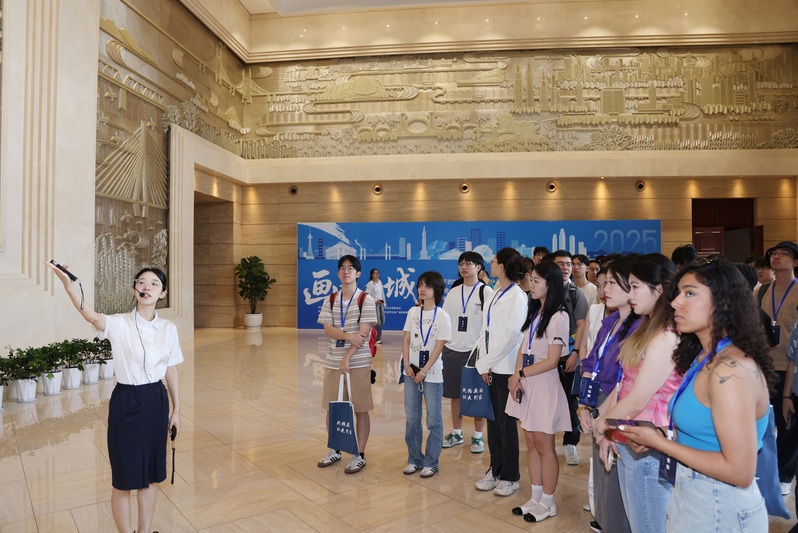
Investigation of Harbin Planning Exhibition Hall
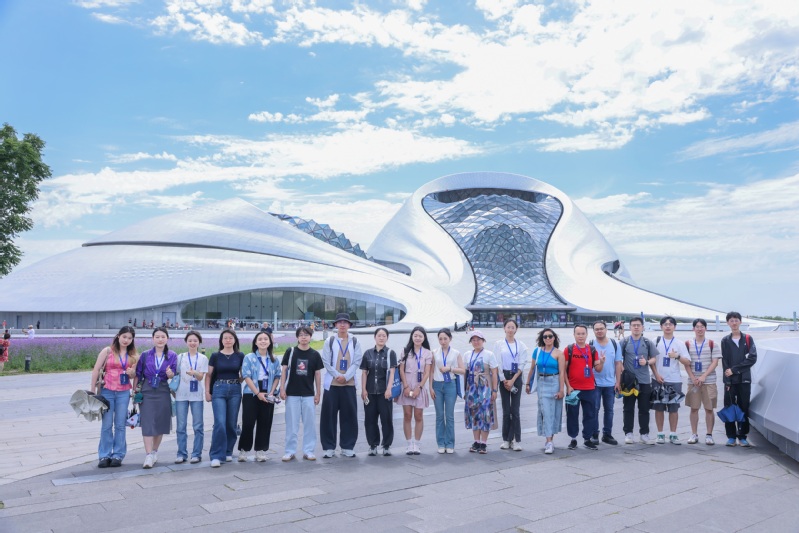
Investigation of Harbin Grand Theatre
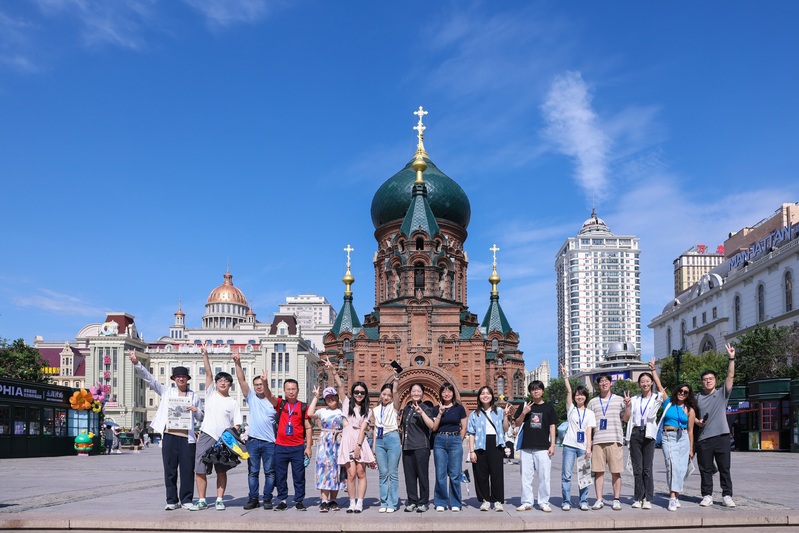
Investigation of Harbin Sophia Square
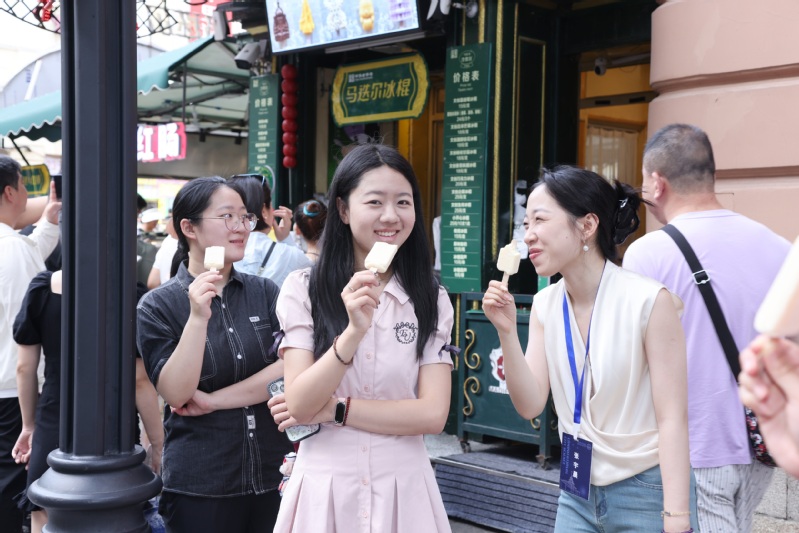
Investigation of Harbin Central Street
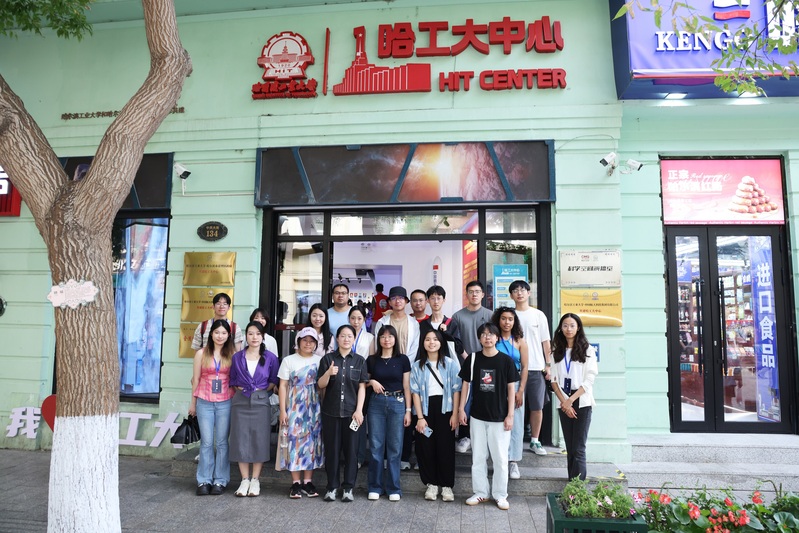
Investigation of HIT Center on Central Street
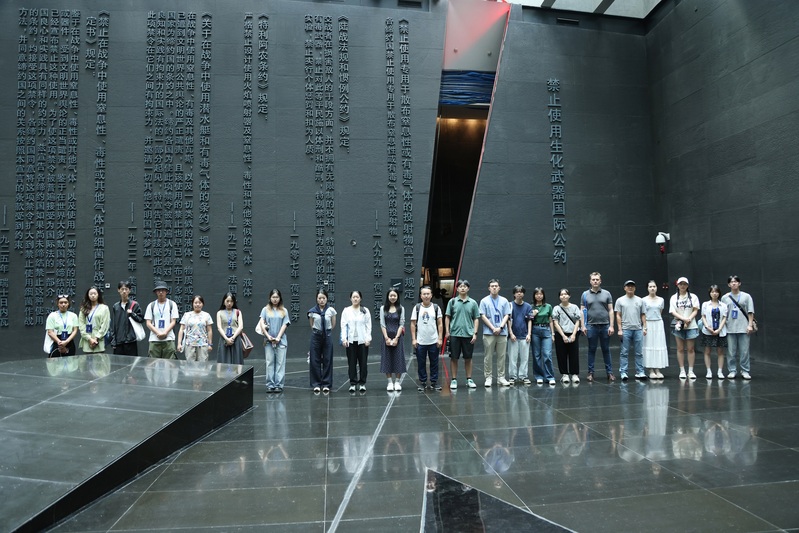
Workshop participants investigated the Exhibition Hall of Evidence of Crimes of Unit 731 of the Japanese Army of Aggression
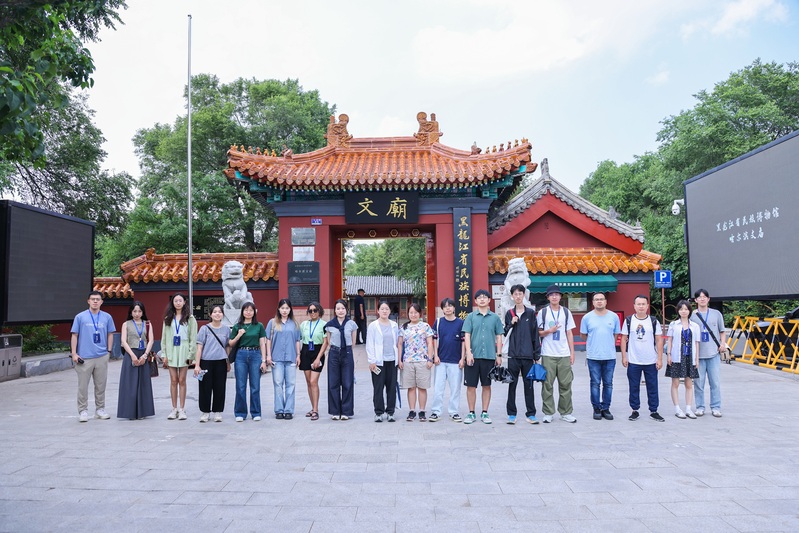
Investigation of Harbin Confucian Temple
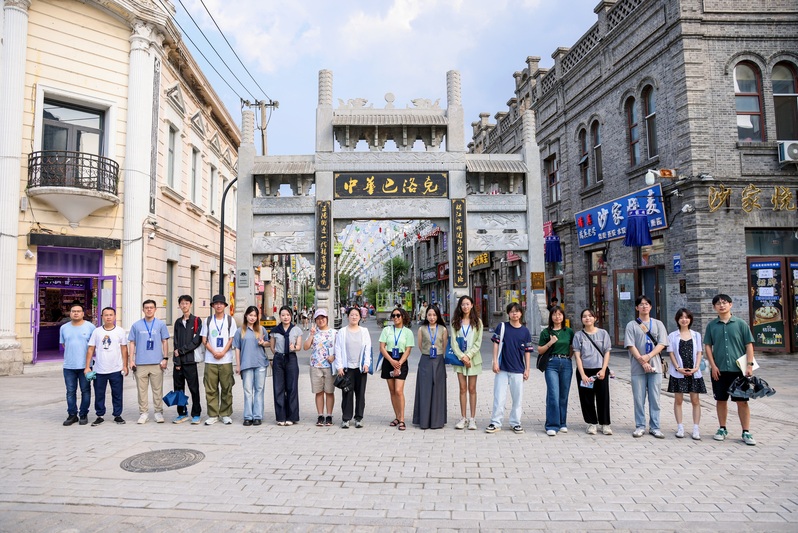
Investigation of Harbin Chinese Baroque Historic District
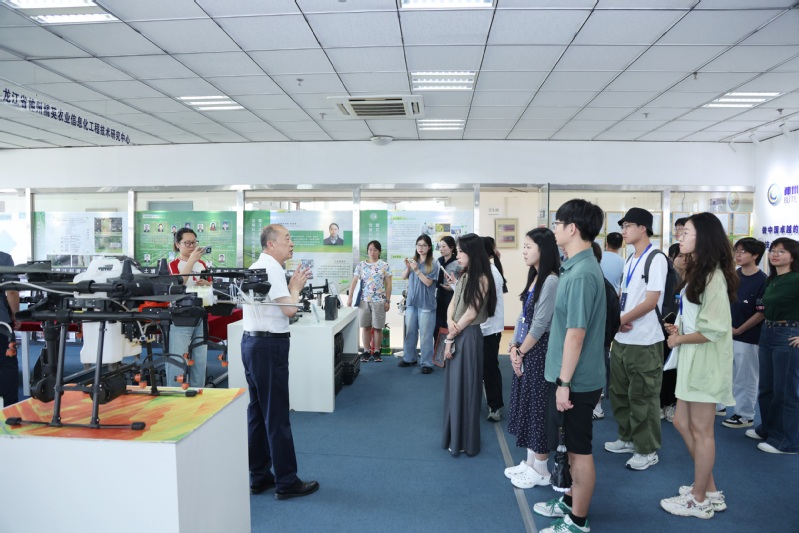
Investigation of Zhongguancun Cloud Valley Shenzhou Elite Technology Company
Part III: Practice and Discussion on Urban Historical Space Computing and Modeling.
Based on thematic seminars and urban research, more than 20 participants of the workshop, based on frontier theories and methods such as computer science, computational urban science, and large model technology, were divided into groups focusing on topics such as “Drone Technology in Construction: Insights from Shenzhou Elite & Applications for Hong Kong”, “Integrating Sino-Baroque Architecture into Smart Urban Revitalization”, “Harbin Urban Planning Proposal”, “Big Data – Driven Urban Renewal Applications”, and carried out systematic exploration and presentations. Guests gave in-depth comments, and fruitful results were achieved.
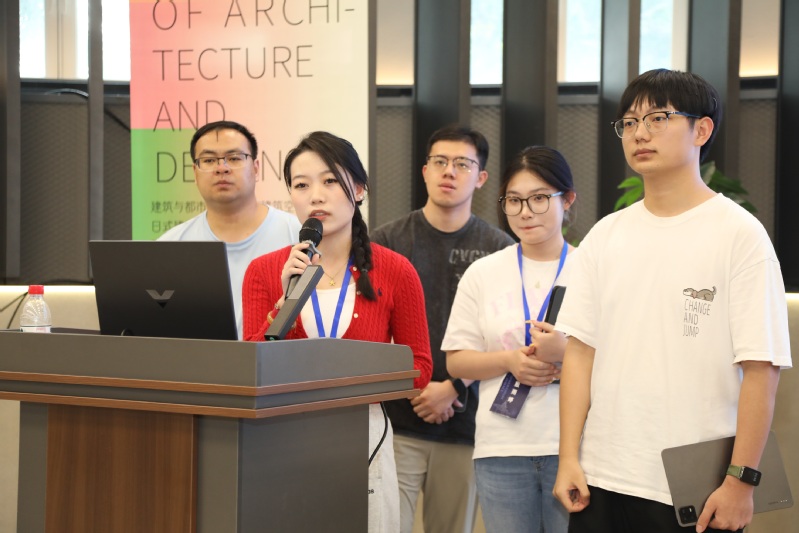
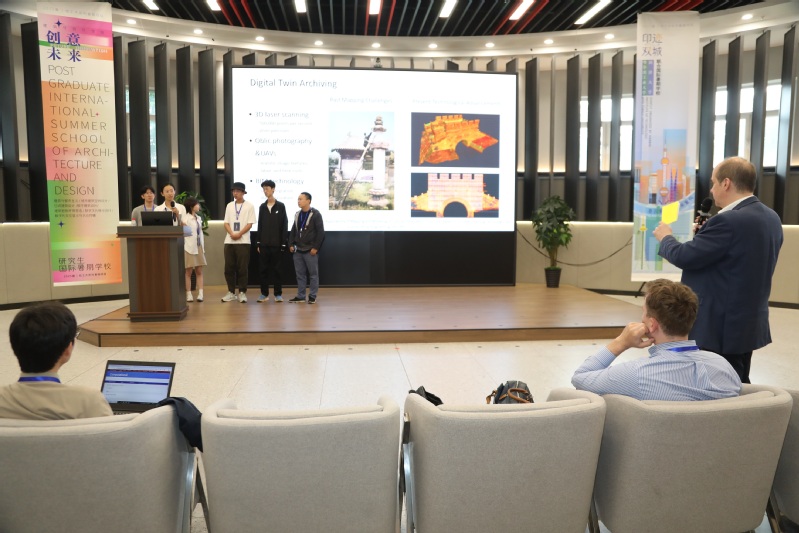
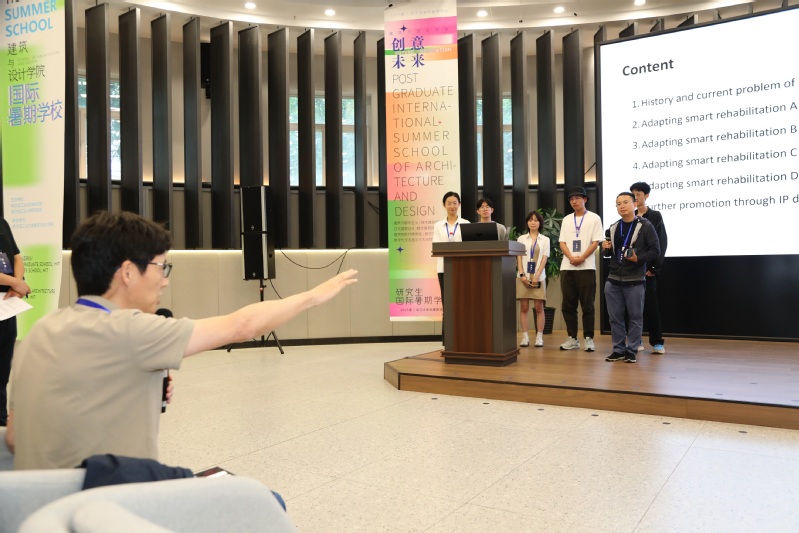
Workshop participants’ achievement presentations and guest comments
On July 11, 2025, the closing ceremony of the “2025 Third Computational Urban Science Workshop” was held at the School of Architecture and Design, Harbin Institute of Technology. Guests attending included Prof. Chen Jianfei, Vice Dean of the School of Architecture and Design of HIT, Prof. Leng Hong, Distinguished Researcher Du Lizhu, Prof. Long Ying of Tsinghua University, Asst. Prof. Filip Biljecki of the National University of Singapore, Assoc. Prof. Kudryavtsev Fedor of Moscow State University, Assoc. Prof. Liu Xintao of The Hong Kong Polytechnic University, and Assoc. Prof. Zhu Haixuan, person in charge of the workshop. Vice Dean Chen Jianfei delivered a speech congratulating the successful holding of the “Computational Urban Science Workshop” for three consecutive sessions. Prof. Leng Hong delivered a speech highly affirming the academic value and theoretical significance of the “Computational Urban Science Workshop.” Finally, a certificate awarding ceremony was held to congratulate the participants on successfully completing all the study sessions of the workshop, thus marking the successful conclusion of the workshop.
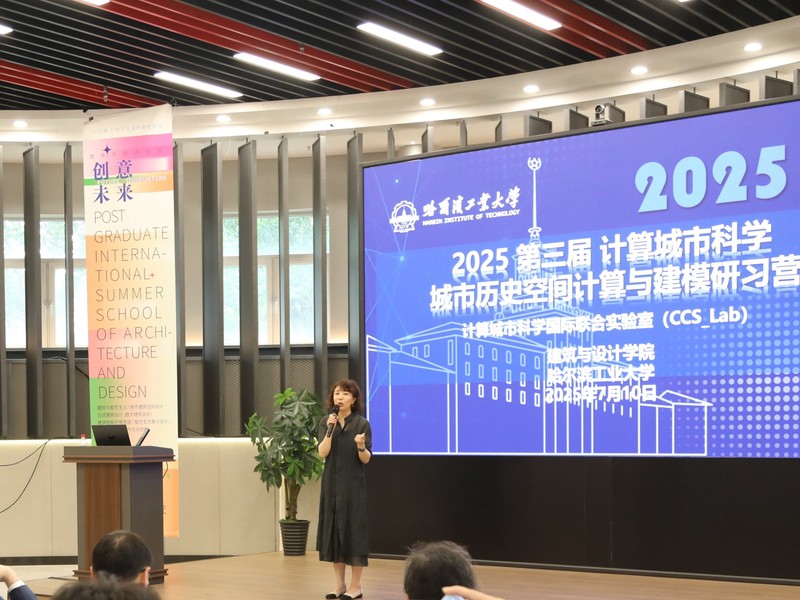
Speech by Prof. Chen Jianfei, Vice Dean of the School of Architecture and Design, HIT
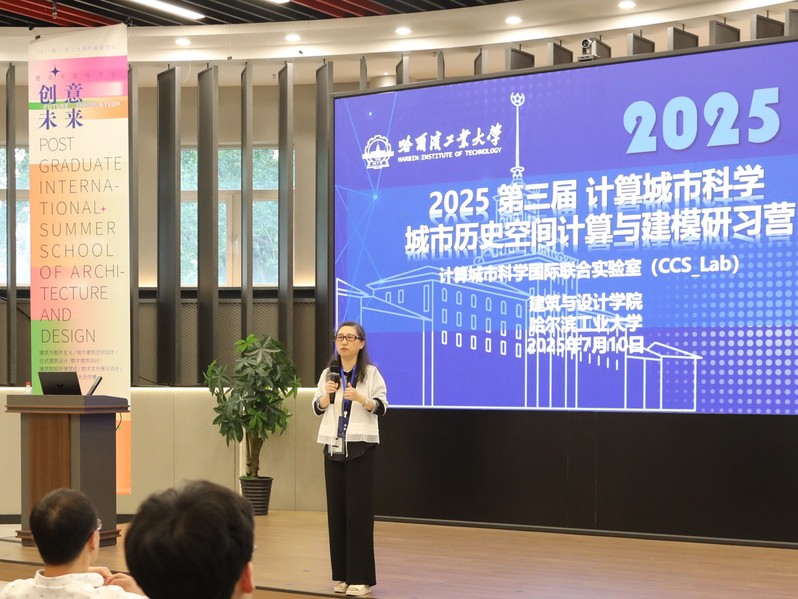
Speech by Prof. Leng Hong, School of Architecture and Design, HIT
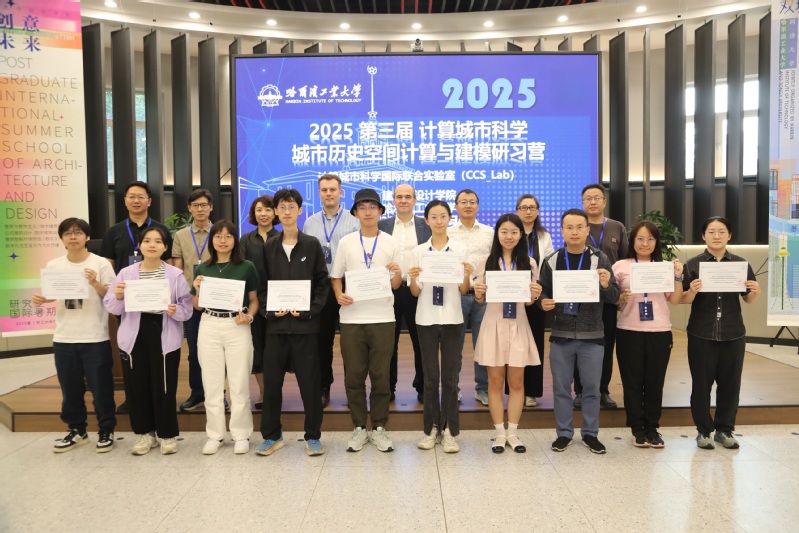
Certificate Awarding Ceremony for Workshop Participants
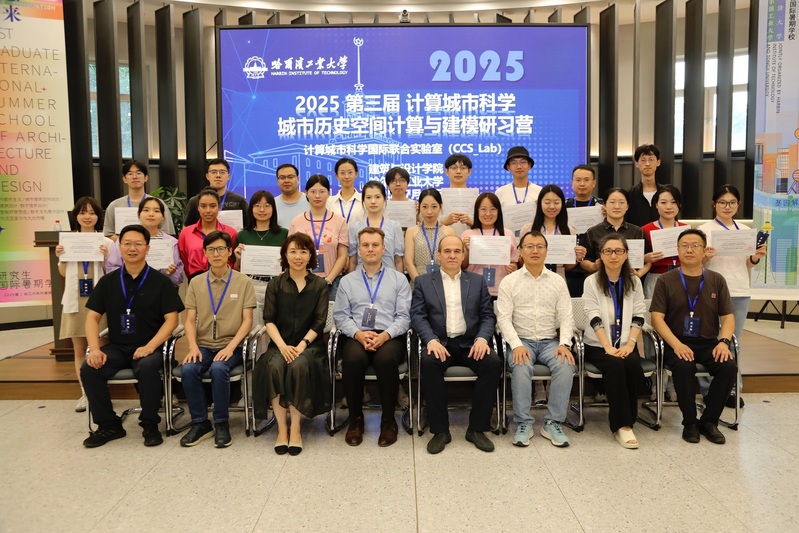
Group Photo of Teachers and Students at the Closing Ceremony of the Workshop
The successful holding of the “2025 Third Computational Urban Science Workshop” is an important initiative of the School of Architecture and Design of HIT to promote interdisciplinary integration and international cooperation. It is a successful practice of the school’s exploration of computerization and AI transformation in the disciplines of computational urban science and urban-rural planning. It is also an important component of teaching and research cooperation between HIT and universities and educational institutions in Hong Kong and Macao. In the future, our faculty and students will continue to deepen international and domestic exchanges and cooperation through the workshop and other forms.



